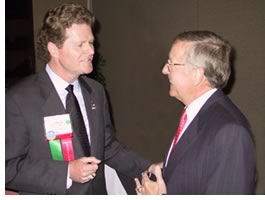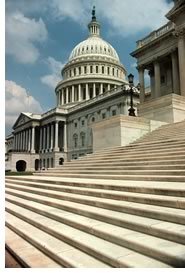
Many states have proposals on the boards

Associate Editor
Various proposals that would levy taxes on architectural services are still in play.
While most state legislatures have adjourned for the year, politicians are still under intense pressure to find funds to bandage leaking state budgets. Both the National Governors' Association (NGA) and the National Association of State Budget Officers (NASBO) are reporting that states are in dire financial straits. At least 40 need to reduce spending while they increase revenue to finish at a balanced budget, as all but Vermont require.
That responsibility is leading many lawmakers to see taxes on professional services as a viable way to expand their tax base and capture revenue from a sector that has generally escaped assessments. During the recess, state officials will continue to grapple with reconciling revenue statutes that tax advocates say have not captured the growth of the services industry and the decline of manufacturing in the U.S.
 A
cause for concern for architects
A
cause for concern for architects
The professional services tax is a cause for concern for many practicing
AIA architects. For example, the AIA's state and local government affairs
staff says the tax may favor out-of-state and multistate firms. This would
be particularly detrimental to small firms, which tend to rely primarily
on in-state business and already compete for in-state projects with larger
out-of-state firms. In addition, the measure would be a new regulatory
burden for small businesses, which account for about 75 percent of all
architecture firms.
Small firms would also be put at a disadvantage because, according to AIA North Carolina and other components, they tend to use outside service providers on a disproportionate basis, whereas large firms typically have these services in-house.
Large firms have reason to grumble about the tax, too. In its background papers on its Web site, AIA North Carolina explains, "Many of the professional sales tax proposals fail to address the complex billing methodologies, fee structures, and organizational structures that are common among architects. Clients will pay multiple taxes on a project, known as pyramiding, because all architectural projects involve a multitude of billing services." Furthermore, "a design firm could end up paying taxes on fees that are sometimes never collected from clients because of changes."
Opponents argue that even if the tax is applicable to out-of-state firms, the state would find it difficult to collect, and revenues would be offset by the cost of additional administration, enforcement, and litigation.
 The
status of proposals
The
status of proposals
The AIA Government Affairs team is tracking developments on service tax
discussions in many states, including California, Florida, Maine, Montana,
Nebraska, Nevada, North Carolina, Oklahoma, Tennessee, Texas, and Virginia.
A governor's task force in Oklahoma made a recommendation to expand the
sales tax base to services, and in Virginia, the Joint Subcommittee to
Study and Revise Virginia's Tax Code is now reviewing a proposal to expand
the sales-and-use tax base to include personal services, amusements, and
repair services.
Some state legislatures, such as Montana and Nevada, which meet every other year, are slated to take up the issue again in 2003.
The proposals have attracted grassroots opposition from a variety of arenas, including businesses, industries, and professional organizations. The AIA State and Local Government Affairs staff is working with AIA members to monitor budget proposals and legislative work and urges components and individuals to share information with the national component office.
Member involvement—a
strategy for success
Components have successfully fended off legislative initiatives that would
levy taxes on professional services. The key, component executives said,
is to form a coalition with other professional organizations and encourage
members to speak with their elected representatives about the measures.
It's been more than a decade since AIA Kansas first got wind of professional services tax proposal in its governor's budget. At that time, a group of business/professional organizations, supported by the state Chamber of Commerce, formed a large coalition to oppose the tax, said AIA Kansas Executive Director Trudy Aron, Hon. AIA, CAE. Aron, who served on the coalition's steering committee, said the group was concerned that elected officials would single out specific professions and vowed to fight the tax as a block. The coalition met once a week when the issue was most active, sometimes more.
Aron said they "met early and often" with statehouse leadership, and met with other lawmakers as particular provisions arose. They organized a member-to-legislator education campaign and developed position papers and fact sheets for members to draw from as they spoke to their elected officials about the effect the revenue provisions would have on their practices and businesses.
Perhaps, most importantly, AIA Kansas members wrote letters to legislators based on their own opinions and experiences. Aron said this personal correspondence had an "incredible impact" on the legislators, with some of them quoting from their constituents in the legislative chambers.
These tactics have served the component and its members well in the intervening 12 years, as the organizations have come together to lobby against other professional service and gross receipts taxes.
In North Carolina, like many other states confronting severe budget shortfalls, state officials are "looking under every rock to find every dime they can," said AIA North Carolina Executive Director David Crawford. State officials are also currently reviewing the effect of the shift in the state's economy from manufacturing and tangible goods, which typically accounts for the collection of sales tax, to a service-based economy where no state revenue is derived.
To halt a legislative tax proposal this year, AIA architects in North Carolina also joined a coalition of professionals, including doctors, attorneys, engineers, accountants, and dentists. They contacted their lawmakers and traveled to Raleigh to visit most of the 170 state legislative offices to lobby their agenda. As a reminder of how important it is to support ArchiPac, North Carolina architects found they had an important ally in Ed McMahan (R-Charlotte), who helped fight the legislation in the statehouse. McMahan is also vice chair of Little & Associates, one of Charlotte's largest architecture practices.
Copyright 2002 The American Institute of Architects. All rights reserved.
![]()
|
The AIA national component reminds members and components that it offers a primer and background information for members who wish to speak with their representatives about the detrimental effects professional-services tax would have on architects. For more information and to get help with specific legislation in your state, contact Christy Agner, program director, State and Local Affairs, 202-626-7381. Read about AIA Tennessee's recent efforts to ward off a professional service tax. |
|